Shenzhen Wesort Optoelectronics Co., Ltd.
Address:Building 29, Longwangmiao Industrial Zone, Fuyong street, Bao'an District, Shenzhen, Guangdong Province, China.
Phone:+86 181 2370 6862
In the plastic pellet production process, color purity often directly determines the product's selling price and market competitiveness. Especially for transparent, white, or light-colored plastic pellets, even tiny black specks can affect the appearance and quality of the final product.
The high-end pellet manufacturing industry has long faced systemic challenges in reducing losses and improving quality, particularly in meeting high purity requirements and controlling minor defects.
During the plastic pelletizing process, unstable temperature and pressure control can easily lead to carbonization, forming black specks (carbon deposits). Common impurities in these plastic pellets can range from burnt-yellow, irregularly shaped, large black specks to tiny specks (as small as 0.1mm) barely noticeable to the naked eye.
Previously, most plastic sorting equipment on the market could only identify and remove black specks larger than 0.35mm, failing to address smaller defects. This presented a headache for many demanding customers.
WESORT integrates high-precision optical inspection and intelligent purification technologies to develop a quality assurance solution covering all pellet categories.
The high-definition plastic pellet color sorter, equipped with micro-difference recognition technology, efficiently identifies and removes quality defects such as subtle color differences and tiny black spots (≥0.1mm) in virgin, recycled, and modified pellets.
By combining micro-difference imaging with AI deep learning algorithms, it can accurately identify and present millimeter-level quality defects in defective particles. Its one-click operation and automated process make it suitable for static laboratory environments and can be seamlessly integrated into production line systems for real-time monitoring and quality control.
Four-channel high-definition plastic pellet color sorter
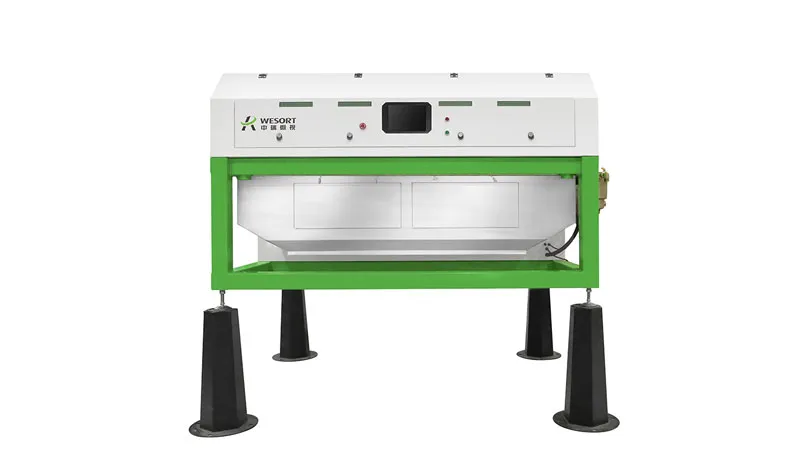
As a professional plastic sorting equipment manufacturer, WESORT's crawler-type plastic color sorter has achieved a quantum leap in black spot detection accuracy and sorting efficiency:
1. High-precision detection: It can detect not only common large black spots but also tiny black spots smaller than 0.35mm, meeting the stringent requirements of high-end plastic pellet processing plants.
2. Multi-defect recognition: Simultaneously removes defects such as burnt brown particles, irregularly shaped particles, large black spots, and small black spots (0.1mm) to ensure the purity of finished pellets.
3. Belt-type design: More stable conveying, reducing vibration and missed selections, ensuring accuracy and stability of the sorting process.
4. High-efficiency production capacity: Maintains high sorting accuracy and consistency while processing large quantities of plastic pellets.
Plastic pellet sorting solution
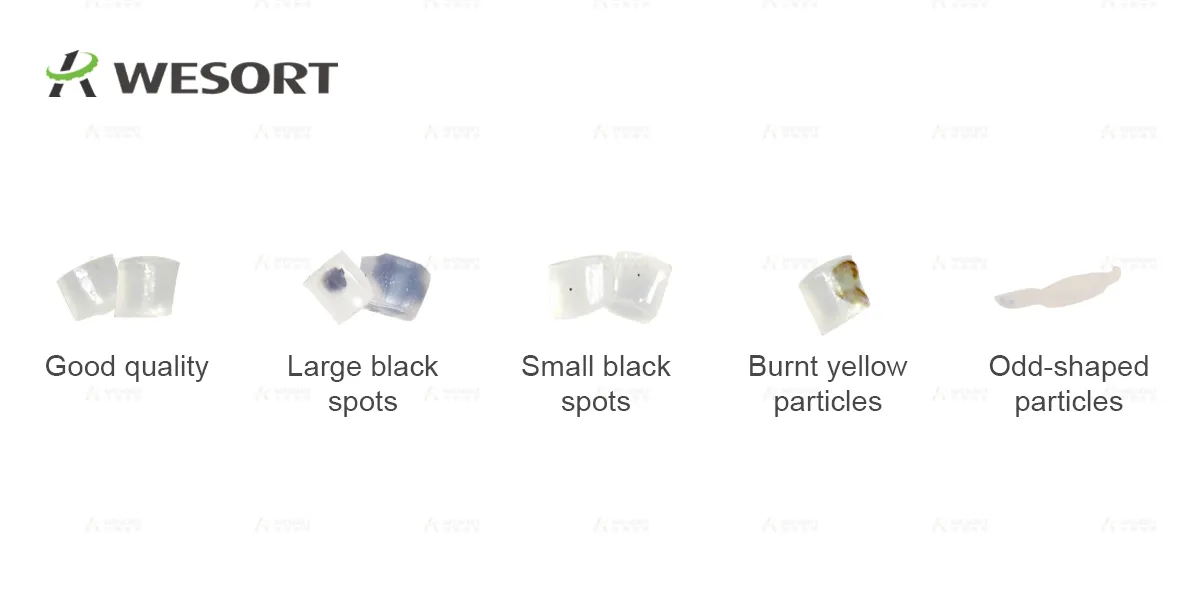
Plastic pellet sorting results
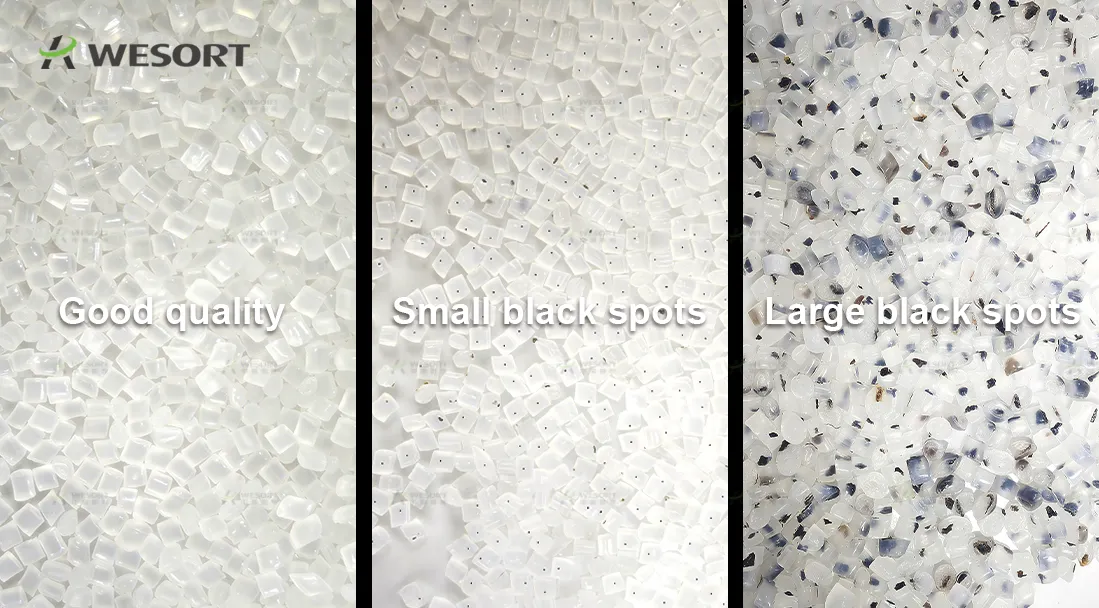
1. Industry-leading AI deep learning recognition system, continuously optimizing the black spot recognition model.
2. Extensive experience in plastic recycling, modified pellets, and food-grade plastics.
3. Small footprint, easy maintenance, low operating costs, and long-term labor savings.
From a technology explorer focused on product R&D to an industry leader pioneering comprehensive intelligent applications, WESORT is revolutionizing industry service models with comprehensive intelligent sorting solutions. We meticulously build customized intelligent sorting and decision-making solutions for users in diverse fields within the plastics industry. Leveraging data insights and algorithms, we achieve leaps in operational efficiency.
The purer the color of plastic pellets, the more market-ready they are. Using a WESORT plastic color sorter not only removes visible defects but also removes black specks as small as 0.1mm, ensuring every plastic pellet meets high standards.
Contact us now for a free material measurement service and witness the high precision and efficiency of a WESORT color sorter for yourself!
In the plastic pellet production process, color purity often directly determines the product's selling price and market competitiveness. Especially for transparent, white, or light-colored plastic pellets, even tiny black specks can affect the appearance and quality of the final product.
The high-end pellet manufacturing industry has long faced systemic challenges in reducing losses and improving quality, particularly in meeting high purity requirements and controlling minor defects.
During the plastic pelletizing process, unstable temperature and pressure control can easily lead to carbonization, forming black specks (carbon deposits). Common impurities in these plastic pellets can range from burnt-yellow, irregularly shaped, large black specks to tiny specks (as small as 0.1mm) barely noticeable to the naked eye.
Previously, most plastic sorting equipment on the market could only identify and remove black specks larger than 0.35mm, failing to address smaller defects. This presented a headache for many demanding customers.
WESORT integrates high-precision optical inspection and intelligent purification technologies to develop a quality assurance solution covering all pellet categories.
The high-definition plastic pellet color sorter, equipped with micro-difference recognition technology, efficiently identifies and removes quality defects such as subtle color differences and tiny black spots (≥0.1mm) in virgin, recycled, and modified pellets.
By combining micro-difference imaging with AI deep learning algorithms, it can accurately identify and present millimeter-level quality defects in defective particles. Its one-click operation and automated process make it suitable for static laboratory environments and can be seamlessly integrated into production line systems for real-time monitoring and quality control.
Four-channel high-definition plastic pellet color sorter

As a professional plastic sorting equipment manufacturer, WESORT's crawler-type plastic color sorter has achieved a quantum leap in black spot detection accuracy and sorting efficiency:
1. High-precision detection: It can detect not only common large black spots but also tiny black spots smaller than 0.35mm, meeting the stringent requirements of high-end plastic pellet processing plants.
2. Multi-defect recognition: Simultaneously removes defects such as burnt brown particles, irregularly shaped particles, large black spots, and small black spots (0.1mm) to ensure the purity of finished pellets.
3. Belt-type design: More stable conveying, reducing vibration and missed selections, ensuring accuracy and stability of the sorting process.
4. High-efficiency production capacity: Maintains high sorting accuracy and consistency while processing large quantities of plastic pellets.
Plastic pellet sorting solution

Plastic pellet sorting results

1. Industry-leading AI deep learning recognition system, continuously optimizing the black spot recognition model.
2. Extensive experience in plastic recycling, modified pellets, and food-grade plastics.
3. Small footprint, easy maintenance, low operating costs, and long-term labor savings.
From a technology explorer focused on product R&D to an industry leader pioneering comprehensive intelligent applications, WESORT is revolutionizing industry service models with comprehensive intelligent sorting solutions. We meticulously build customized intelligent sorting and decision-making solutions for users in diverse fields within the plastics industry. Leveraging data insights and algorithms, we achieve leaps in operational efficiency.
The purer the color of plastic pellets, the more market-ready they are. Using a WESORT plastic color sorter not only removes visible defects but also removes black specks as small as 0.1mm, ensuring every plastic pellet meets high standards.
Contact us now for a free material measurement service and witness the high precision and efficiency of a WESORT color sorter for yourself!
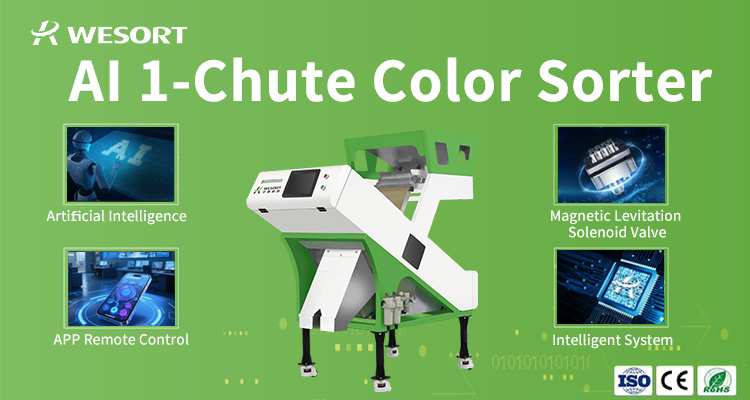
In modern agriculture, food processing, and recycling, quality control plays a vital role. This is where an optical sorter comes in. Many buyers often ask: What is an optical sorter? What does it do? How much does it cost? And how is WESORT optical...
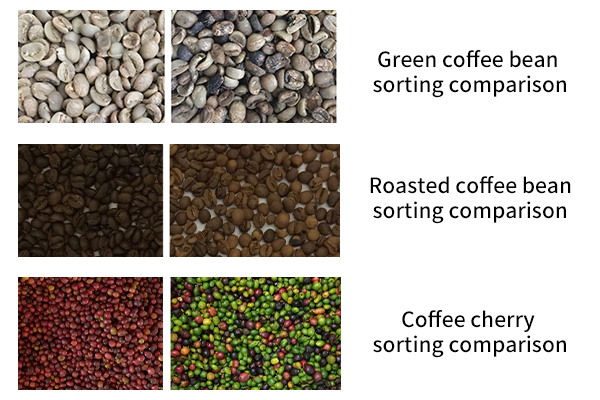
In the coffee industry, the quality of the final cup often depends on the smallest details during processing. One crucial step is removing defective beans, foreign materials, and color inconsistencies. This is where a coffee bean color sorter plays...

Coffee processing is a complex and meticulous task that involves several stages to transform raw coffee cherries into the high-quality beans we enjoy in our morning brew. One crucial step in this process is the sorting of coffee beans based on thei...
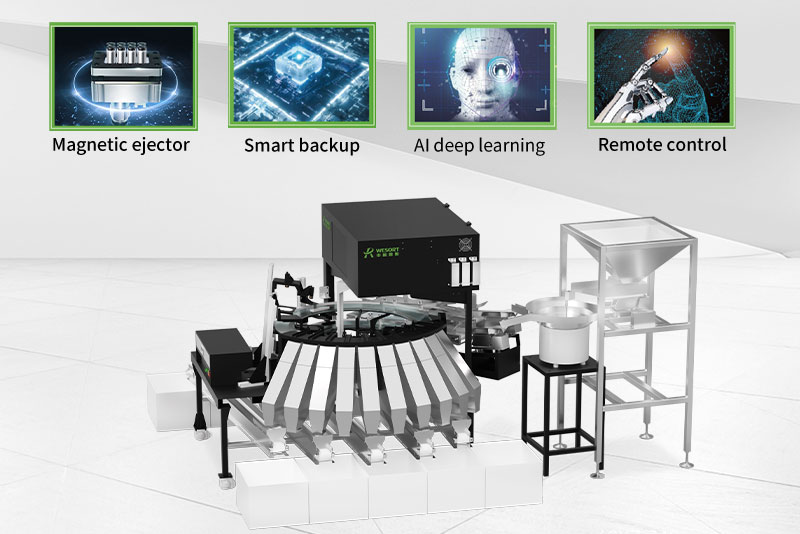
In the world of walnut processing, even the smallest imperfection can significantly impact product quality, market price, and brand reputation. Mold, insect damage, broken pieces, or inconsistent color are common defects that reduce the value of wa...
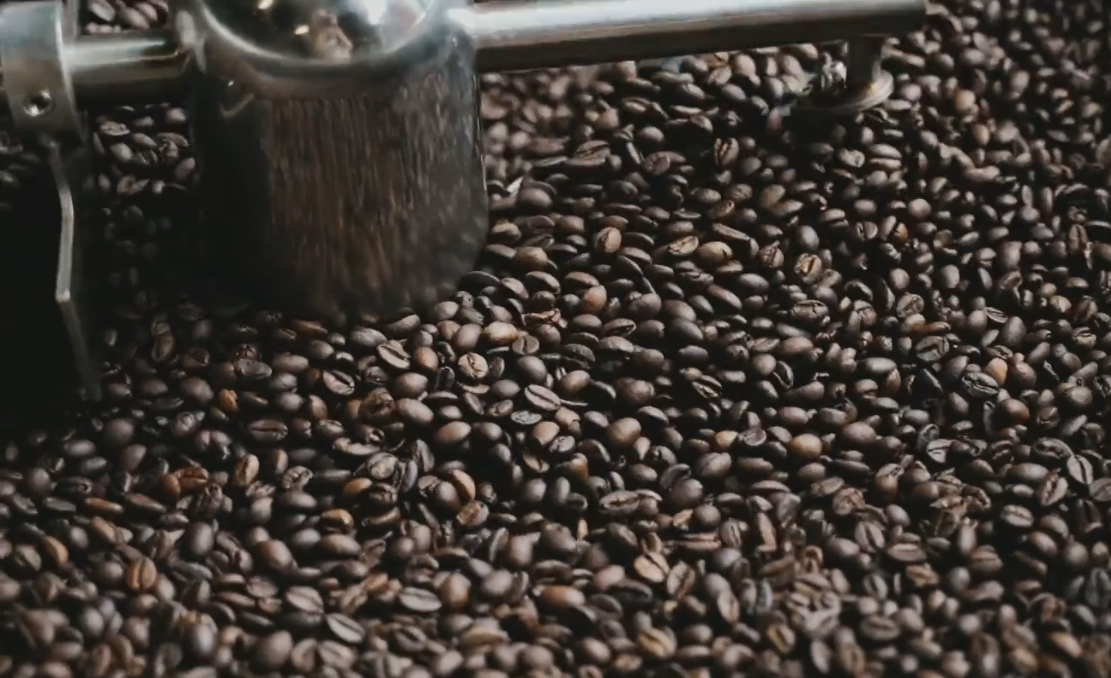
From green bean exporters to specialty coffee roasters, every producer faces the same challenge: how to remove defects efficiently while protecting valuable beans. Problems such as mold, fermentation damage, insect bites, black beans, broken beans,...
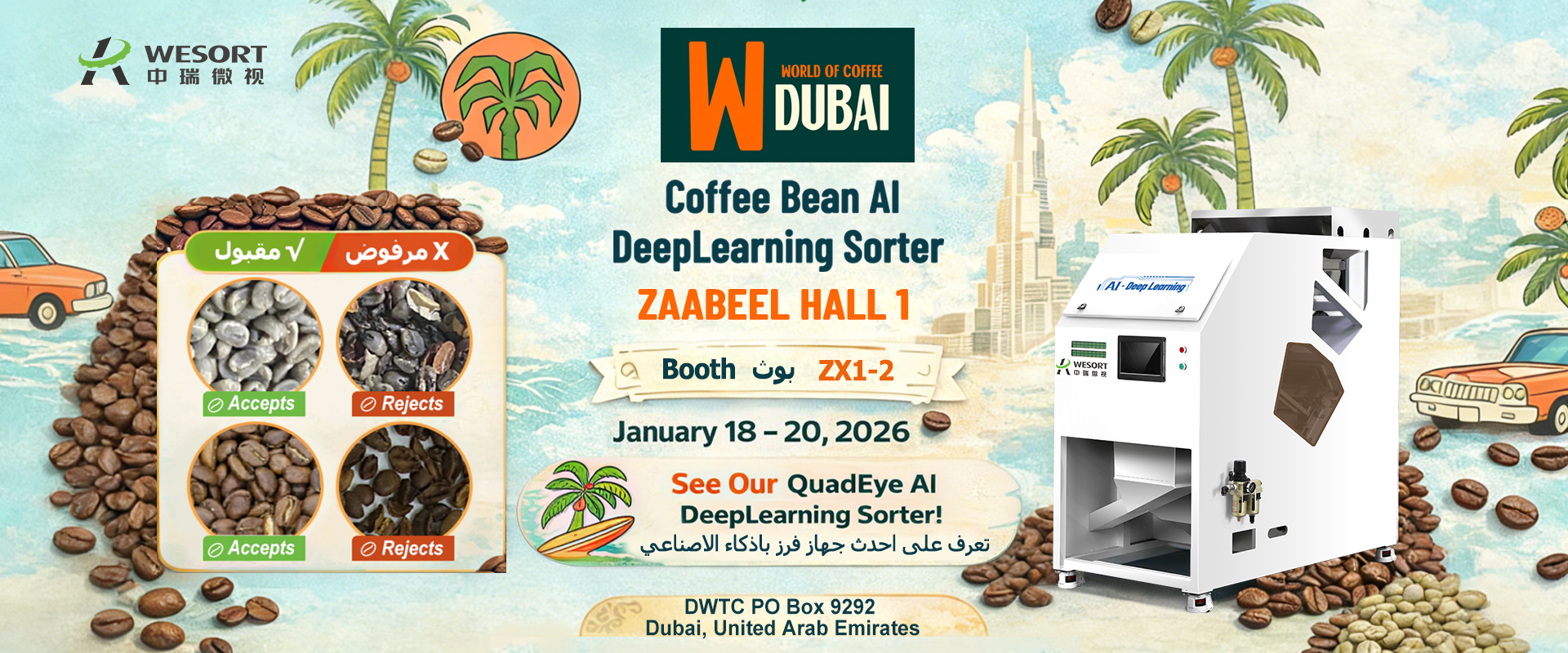
To meet the growing demand for premium and specialty coffee, sorting accuracy must go beyond traditional color-based systems. The QuadEye 360 AI Coffee Bean Sorter, developed by WESORT, represents the next generation of intelligent coffee bean so...
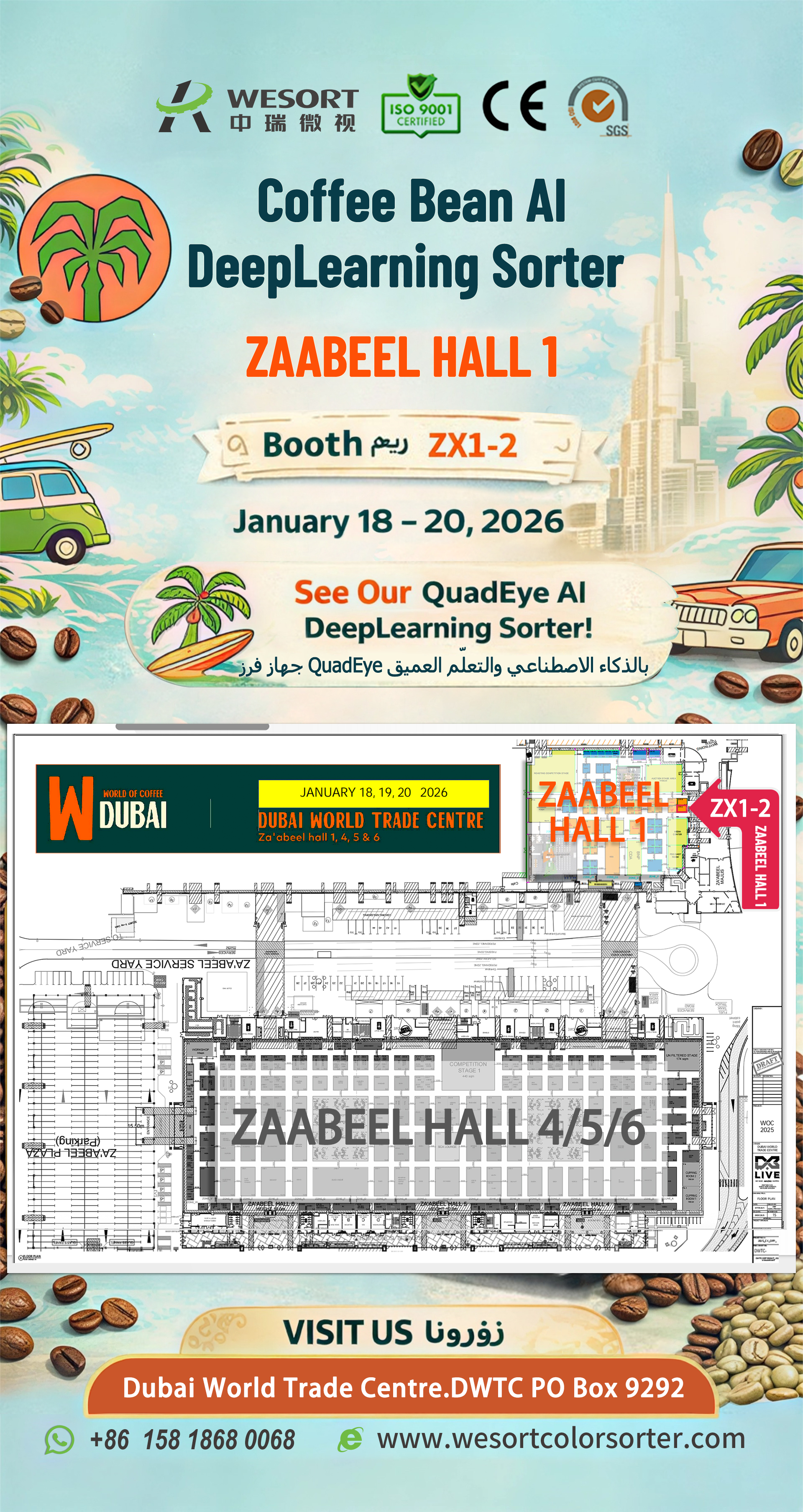
Dear friend, If you are attending World of Coffee Dubai 2026. we would like to invite you to visit WESORT. We will showcase our QuadEye 360 AI Coffee Bean Sorter, featuring 360° four-side inspection, AI deep learning models, near-zero breakage,...

Meta Description: Looking for the top hazelnut sorting machine manufacturer? WESORT offers advanced hazelnut color sorters with AI deep learning to efficiently remove defects, pests, and foreign materials. Boost your hazelnut processing efficienc...
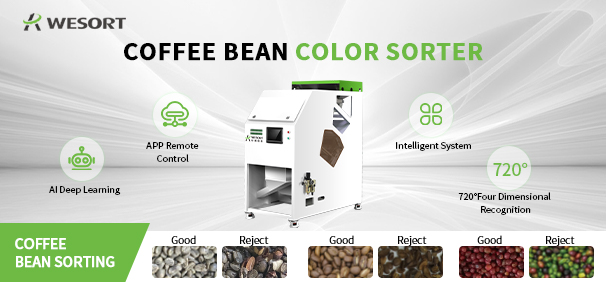
With the growing popularity of specialty coffee, the purity of coffee beans determines the aroma and taste of a cup of coffee. Achieving 99.9% purity requires high-performance coffee bean sorting equipment. Among Chinese coffee bean color sorter ma...
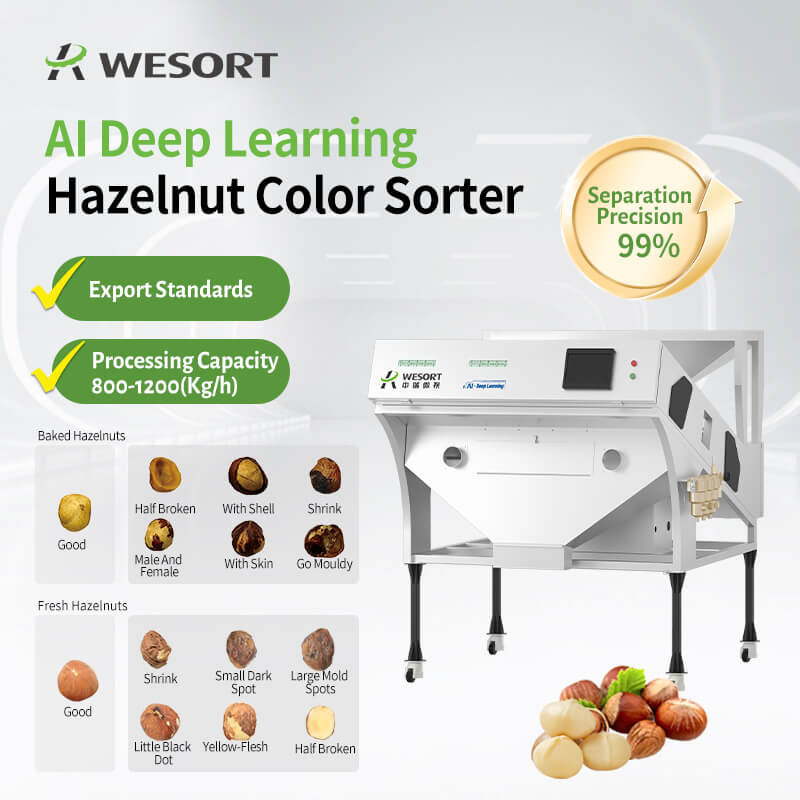
What's the most vexing issue in the hazelnut industry chain? It's not yield, but quality. Defects like mold, wrinkled skin, and foreign matter not only reduce product value but can also put export orders at risk. The solution isn't to increase the ...
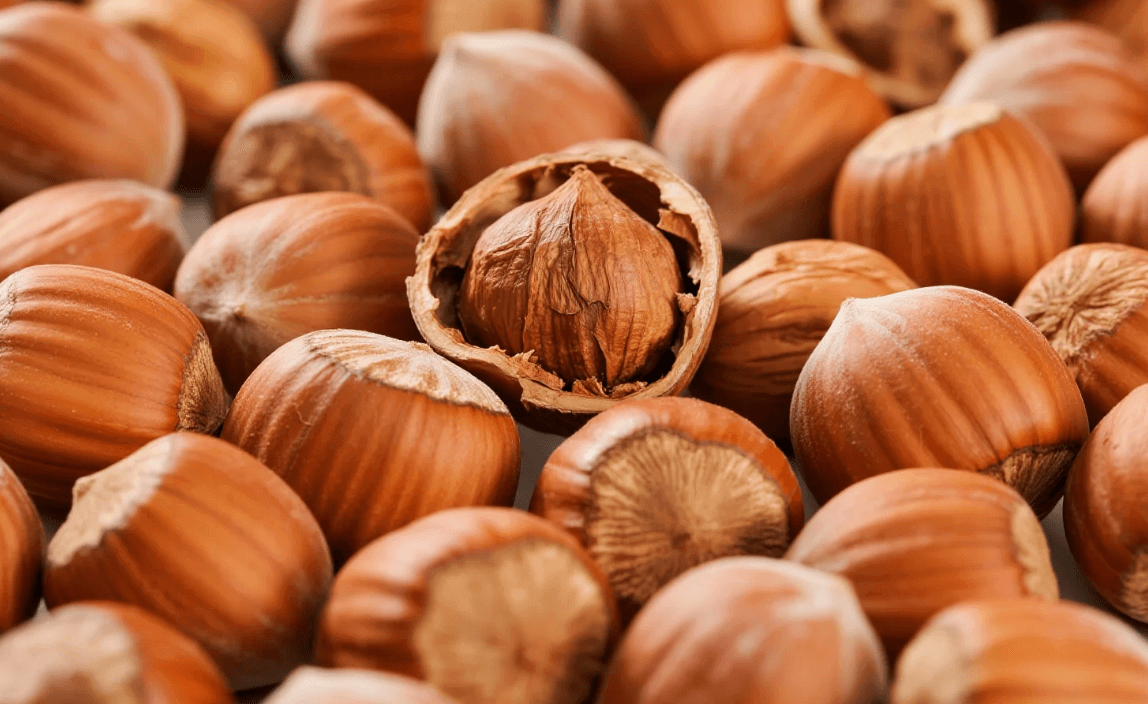
Every hazelnut tells a story—about the soil it grew in, the care during harvest, and the precision of its processing. Yet between farm and final product, hidden defects like mold, insect damage, and discoloration can turn premium hazelnuts into cos...

Plastic waste recycling is one of the most pressing challenges in today’s sustainability-driven world. Proper plastic sorting ensures high-quality recycled materials, reduces environmental impact, and improves profitability for recycling businesses...
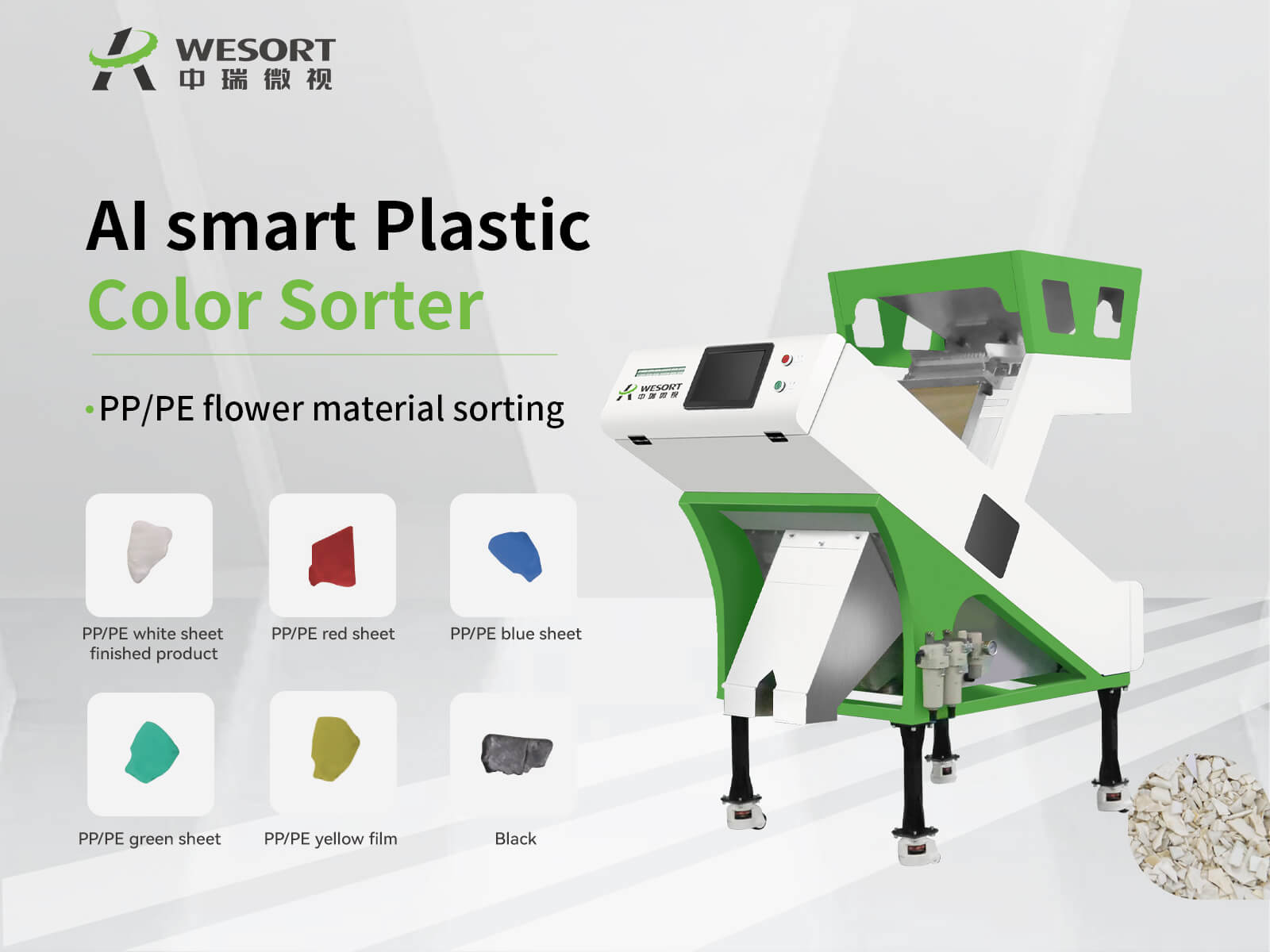
In the plastic recycling industry, purity and efficiency directly determine profitability. As global demand for recycled plastics increases, manufacturers need advanced solutions to separate impurities, improve yield, and ensure consistent product ...
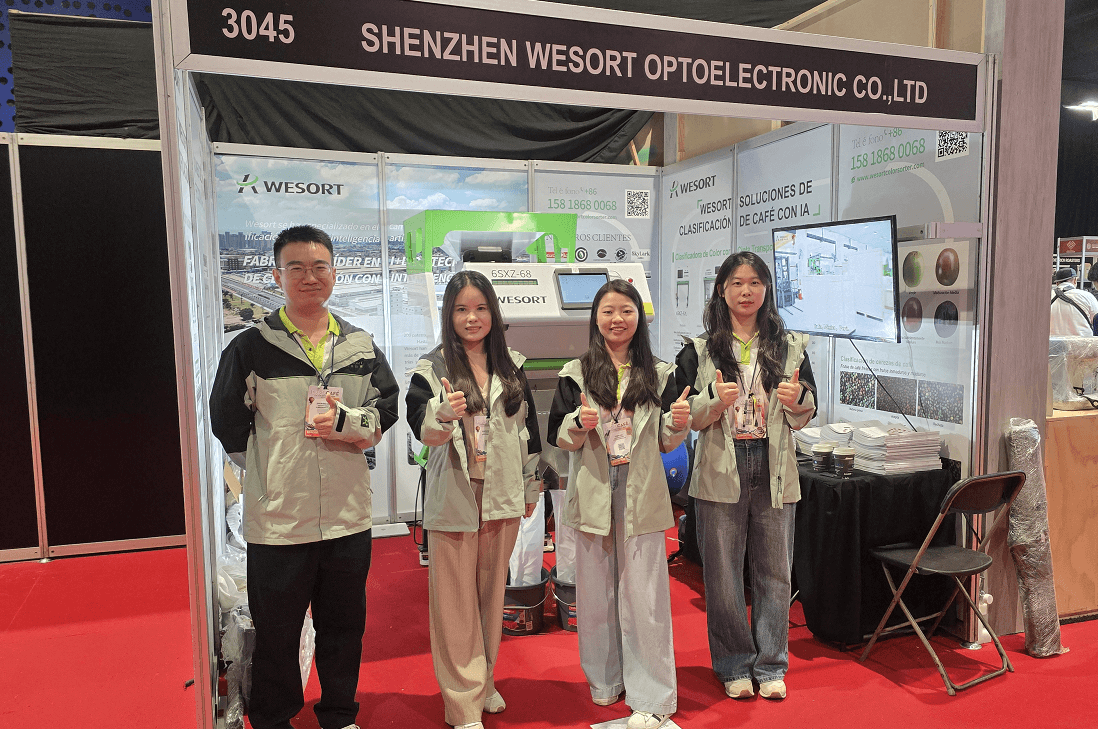
In Mexico, coffee is more than just a drink — it’s a culture, a tradition, and a vital industry. Yet, challenges like impurities, pest damage, and uneven coloration often diminish the value of even the most carefully cultivated beans. At EXPO CAFÉ...
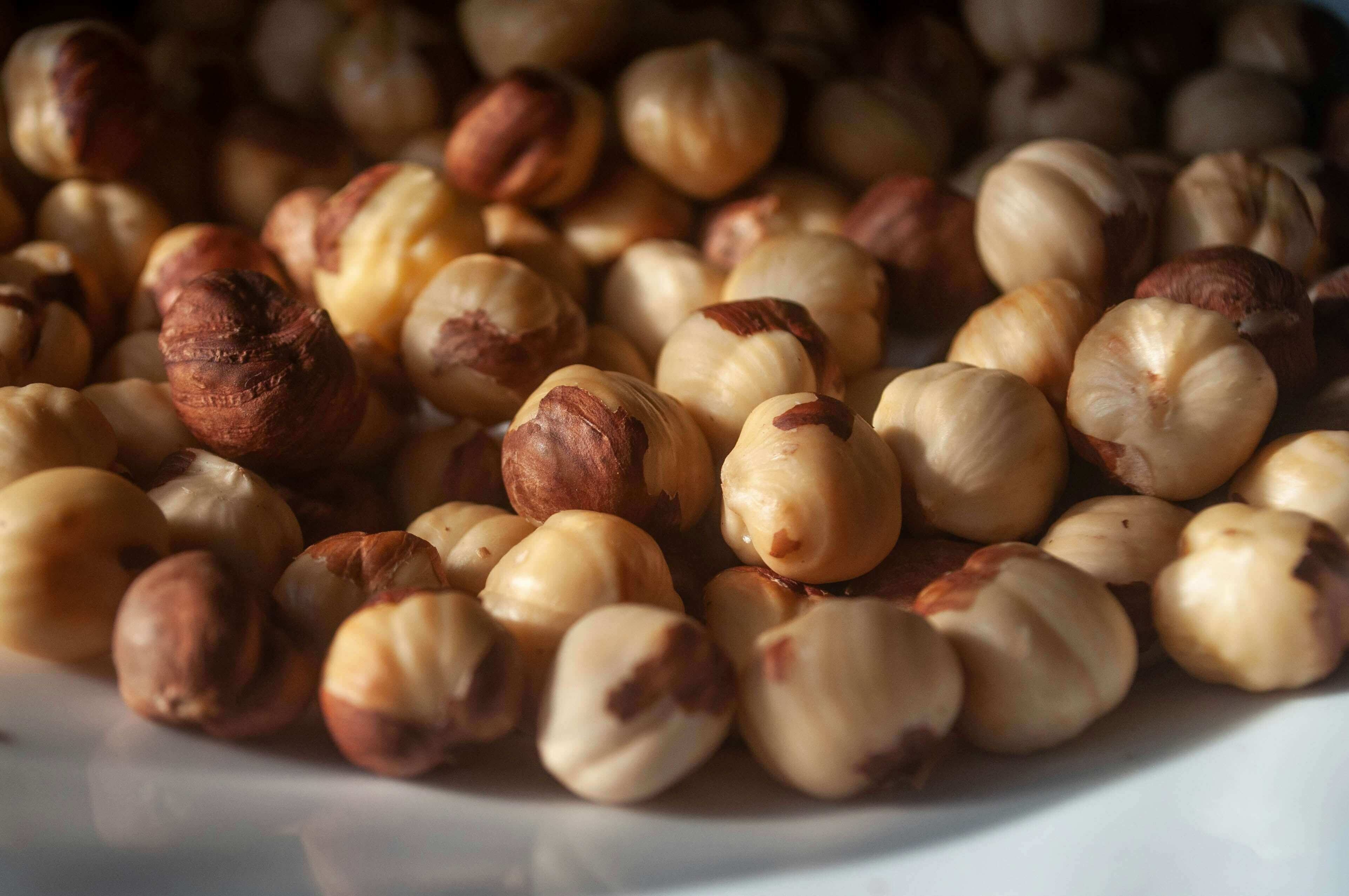
The global demand for hazelnuts continues to rise, driven by the growth of confectionery, bakery, and healthy snack markets. As consumption increases, so does the importance of quality control. Hazelnut processors face mounting pressure to deliver ...
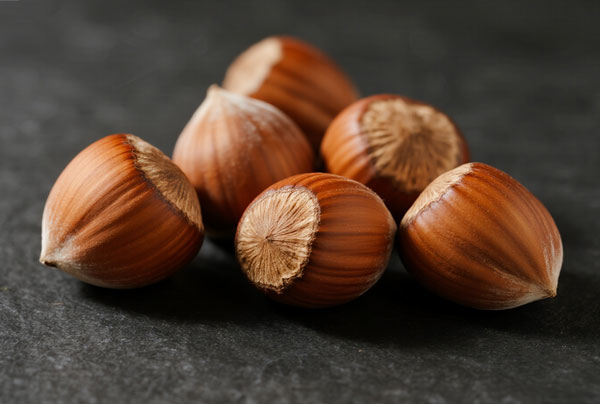
Hazelnuts are widely used in confectionery, bakery, and snacks, where product quality directly affects market value. However, hazelnut processing often faces serious challenges, such as pest infestation, seasonal labor shortages, and inconsistent m...
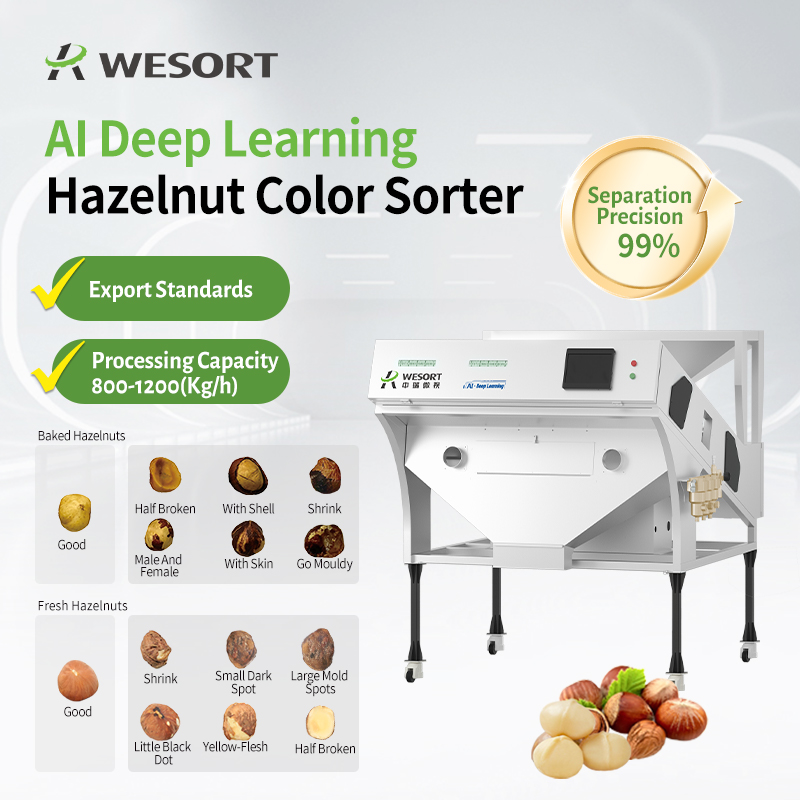
Hazelnut is the nut of the hazel and therefore includes any of the nuts deriving from species of the genus Corylus, especially the nuts of the species Corylus avellana. It is also known as cobnut or filbert nut according to species. A cob is roughl...
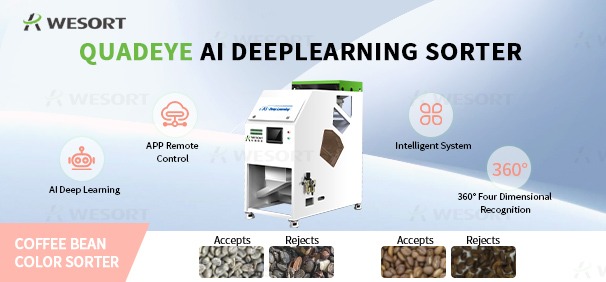
When you enjoy a smooth cup of coffee, you may not realize how much work goes into ensuring its purity and flavor. From harvest to cup, every step matters—and one of the most critical yet often overlooked stages is coffee bean sorting. Common Cof...
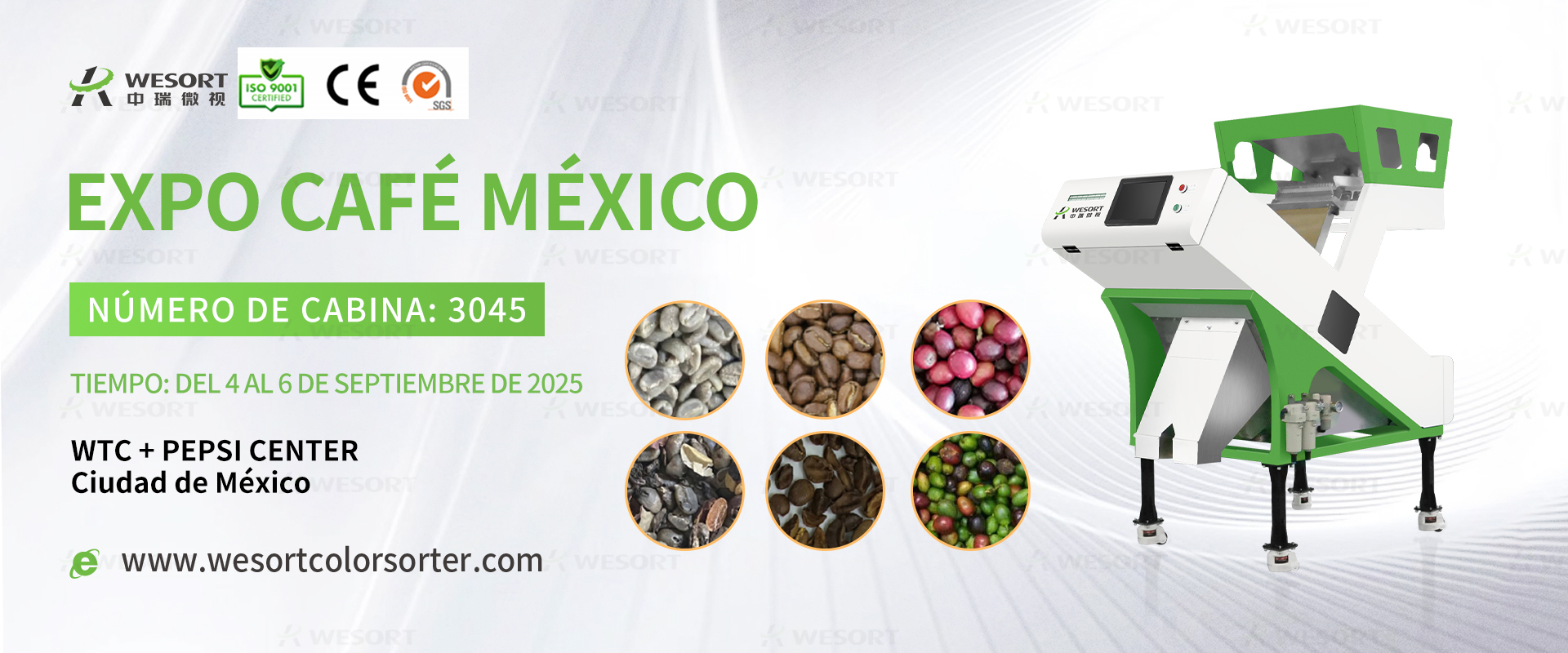
Dear Coffee Industry Partners, The Mexican Coffee Shop Expo 2025 is just around the corner—and WESORT , a leader in intelligent sorting technology, will be there to showcase our core solution for coffee processors: Coffee Bean Color Sorters. Mark...
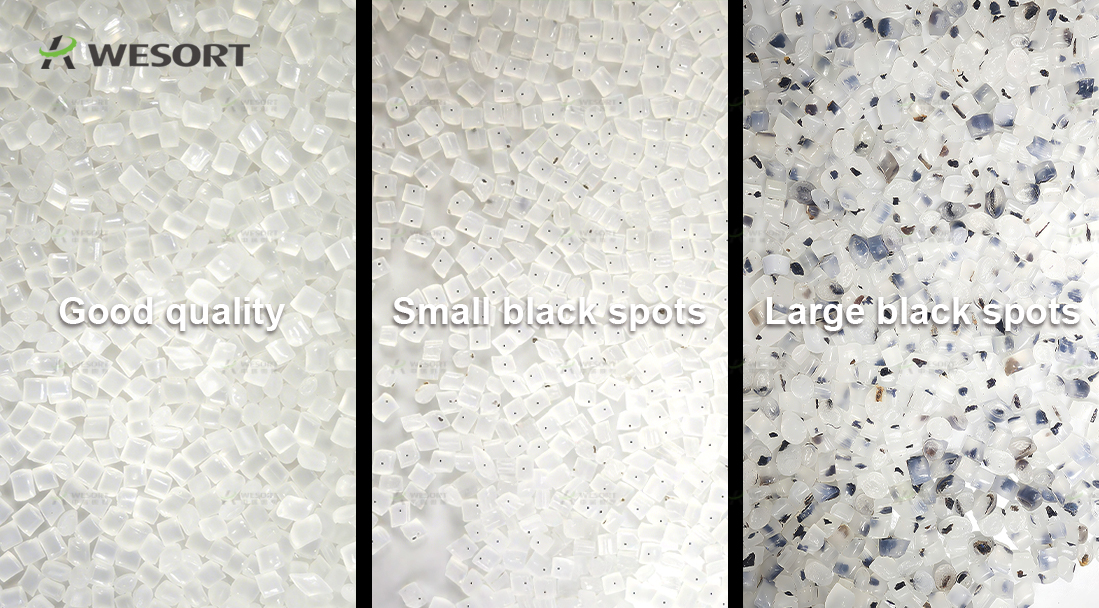
In the plastic pellet production process, color purity often directly determines the product's selling price and market competitiveness. Especially for transparent, white, or light-colored plastic pellets, even tiny black specks can affect the appe...

In modern agriculture, food processing, and recycling, quality control plays a vital role. This is where an optical sorter comes in. Many buyers often ask: What is an optical sorter? What does it do? How much does it cost? And how is WESORT optical...

In the coffee industry, the quality of the final cup often depends on the smallest details during processing. One crucial step is removing defective beans, foreign materials, and color inconsistencies. This is where a coffee bean color sorter plays...

Coffee processing is a complex and meticulous task that involves several stages to transform raw coffee cherries into the high-quality beans we enjoy in our morning brew. One crucial step in this process is the sorting of coffee beans based on thei...

In the world of walnut processing, even the smallest imperfection can significantly impact product quality, market price, and brand reputation. Mold, insect damage, broken pieces, or inconsistent color are common defects that reduce the value of wa...

From green bean exporters to specialty coffee roasters, every producer faces the same challenge: how to remove defects efficiently while protecting valuable beans. Problems such as mold, fermentation damage, insect bites, black beans, broken beans,...

To meet the growing demand for premium and specialty coffee, sorting accuracy must go beyond traditional color-based systems. The QuadEye 360 AI Coffee Bean Sorter, developed by WESORT, represents the next generation of intelligent coffee bean so...

Dear friend, If you are attending World of Coffee Dubai 2026. we would like to invite you to visit WESORT. We will showcase our QuadEye 360 AI Coffee Bean Sorter, featuring 360° four-side inspection, AI deep learning models, near-zero breakage,...

Meta Description: Looking for the top hazelnut sorting machine manufacturer? WESORT offers advanced hazelnut color sorters with AI deep learning to efficiently remove defects, pests, and foreign materials. Boost your hazelnut processing efficienc...